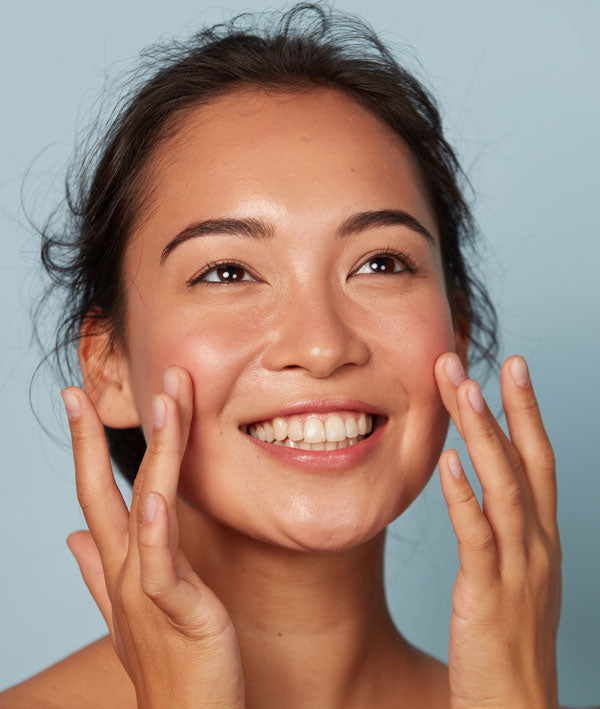When it comes to achieving healthy, glowing skin, many of us are quick to invest in the latest skincare products, exfoliators, or serums. But there's one secret ingredient that doesn't come in a bottle—sleep. It's a simple yet powerful way to rejuvenate your skin and enhance your complexion. If you're cutting corners on rest, your skin will show it. Explore how sleep impacts your skin, why it's crucial for maintaining a youthful appearance, and how you can make the most of your beauty sleep.
The Science Behind Beauty Sleep
During the day, your skin faces environmental stressors such as UV rays, pollution, and toxins that accelerate aging and cause damage. When you sleep, your body switches from "defense mode" to "repair mode." The hours of deep rest are when the skin repairs itself, producing new cells and collagen, a protein responsible for keeping skin firm and youthful.
One of the most important processes during sleep is the production of growth hormones. These hormones promote cell turnover, which means old, damaged skin cells are replaced with new, healthy ones. This is why a lack of sleep can result in dull, tired-looking skin. Sleep is also when your skin’s blood flow increases, bringing oxygen and nutrients to skin cells. This increased circulation helps repair damage and leaves you with a more radiant, refreshed complexion in the morning.
How Sleep Deprivation Affects Skin Health
On the flip side, lack of sleep can wreak havoc on your skin. Inadequate rest triggers an increase in the stress hormone cortisol. Elevated cortisol levels can lead to inflammation, which breaks down collagen and hyaluronic acid, the molecules responsible for plump, hydrated skin. This is why people who consistently get less sleep are more prone to sagging skin, fine lines, and a dull complexion.
Here are some of the most common skin issues caused by sleep deprivation:
Dark Circles and Puffy Eyes: Poor sleep leads to fluid retention, which causes puffiness and dark circles around the eyes. Blood vessels become more visible under the thinner skin of the eye area, giving that telltale sign of tiredness.Dull Complexion: When you skip sleep, your skin doesn't get the chance to repair and renew itself, leading to a dull, ashen complexion. You miss out on the overnight regeneration process, which can result in your skin appearing less vibrant.
Premature Aging: Chronic sleep deprivation accelerates the appearance of wrinkles, fine lines, and sagging. The breakdown of collagen due to increased inflammation means your skin loses elasticity faster.
Acne and Breakouts: Higher levels of cortisol not only trigger inflammation but can also lead to increased oil production, which clogs pores and results in breakouts.
Maximizing the Benefits of Beauty Sleep
Now that we understand the profound effects of sleep on the skin, how can we optimize our nightly routine to maximize its benefits?
-
Establish a Consistent Sleep Schedule: Try to get 7-9 hours of sleep each night. Going to bed and waking up at the same time every day helps regulate your circadian rhythm, which supports overall skin health.
-
Skincare Before Bed: Applying products with ingredients like hyaluronic acid, retinol, or peptides can enhance your skin's overnight repair. Using a high-quality serum can boost hydration and collagen production while you sleep. (We suggest a hyaluronic acid serum and CoQ10)
-
Sleep on Your Back: The way you sleep can affect your skin. Pressing your face into a pillow can cause wrinkles over time, especially on your cheeks and forehead. Try to sleep on your back to prevent this.
-
Invest in a Silk Pillowcase: Silk pillowcases reduce friction between your skin and the pillow, minimizing the likelihood of wrinkles and irritation. They can also help your skin retain moisture, keeping it plump and smooth.
-
Hydrate: Drink plenty of water throughout the day to keep your skin hydrated. You can also apply a nighttime moisturizer to lock in moisture while you sleep.
Final Thoughts: Sleep and Skincare Go Hand in Hand
While skincare products are essential for maintaining healthy skin, they work best when paired with adequate sleep. Your nightly rest gives your skin the time it needs to heal, regenerate, and refresh. The connection between sleep and skin health is clear: the more restful your sleep, the more radiant your complexion will be.
At Small Batch Serums, we believe in a holistic approach to skincare. Our high-quality, potent serums are designed to work in harmony with your skin’s natural processes, helping you achieve the glowing, youthful complexion you deserve. But don't forget—true beauty sleep starts with a good night’s rest.
By prioritizing sleep alongside your skincare routine, you'll wake up to healthier, more vibrant skin each day.







